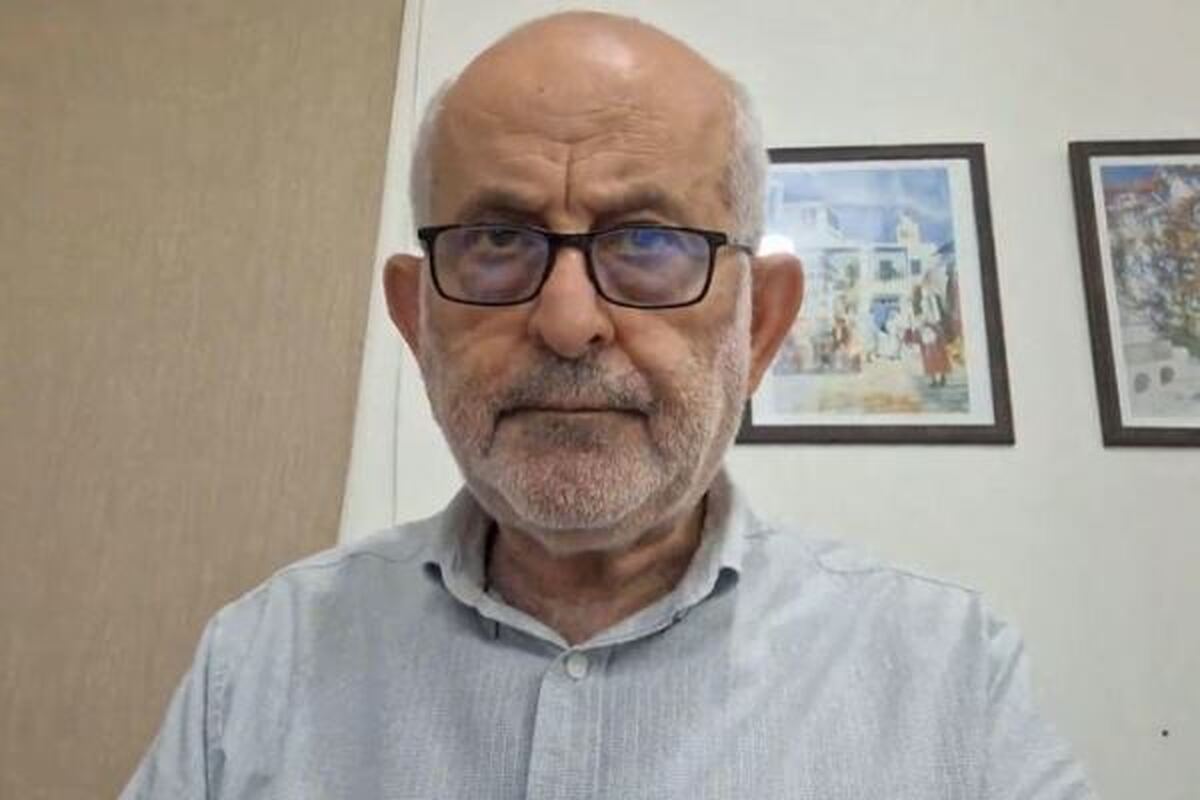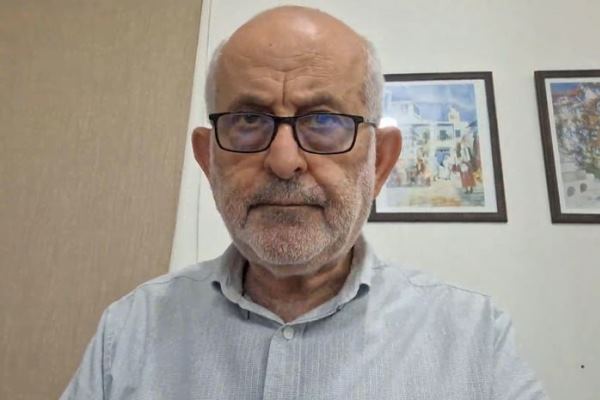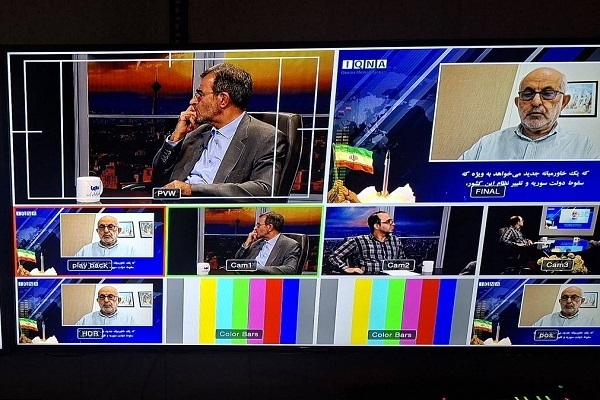Iranian Resistance Foiled US-Israeli ‘New Middle East’ Project, Scholar Says


Talal Atrisi made the remark in an online event titled “Iran’s Dignity and Power; A Message beyond Missiles,” organized by IQNA on Saturday.
Other speakers at the webinar included International Islamic University Malaysia’s political sciences scholar Danial Bin Mohd Yusof, international relations professor at Indonesia’s Universitas Padjadjaran Dina Sulaeman, and Palestinian analyst Iyad Abu Nasser.
The event came following a 12-day US-Israeli aggression on Iran and the country’s mighty defense against aggressors.
Following is the text of Atrisi’s address to the webinar:
Operation True Promise 3, carried out by the Islamic Republic of Iran, was in fact a response to the Zionist regime’s aggression against the Islamic Republic. That is, this response was a defensive one. Israel’s aggression essentially occurred within the framework of two interrelated contexts.
The first context was that the head of the Israeli regime had declared more than once that he wanted a “new Middle East”—especially since the fall of the Syrian government and the change in its system, Israel’s infiltration into Syria, and its encroachment into various Syrian regions led the Israeli leader to believe that all Middle Eastern countries could fall under Israeli domination, with the Islamic Republic of Iran being the main obstacle to this project.
Thus, the aggression against the Islamic Republic was carried out within this framework, and contrary to the Israeli regime’s claims, it was not about destroying nuclear weapons. That was merely a superficial pretext.
The second context was the negotiations between Iran and the US, the purpose of which was to determine the future of Iran’s peaceful nuclear program. In return, the US might have gained access to trade agreements and other benefits. Therefore, on one hand, there was a shift in direction for (Israeli prime minister Benjamin) Netanyahu, and on the other, a path of diplomatic negotiations between Iran and the US.
What happened was that this aggression disrupted the peaceful negotiation process, plunging the entire region into a state of tension, anxiety, and fear. War erupted between the two sides—a brutal and devastating war.
In reality, what events, statements, and various positions have revealed—whether from Israel and the US or from newspapers and other media—is that the enemy’s target was not just Iran’s nuclear program. The assassinations carried out, the number of mercenaries the Zionist regime relied on and had trained for years for this moment, had no connection to the nuclear program.
Thus, their goal was either the collapse of Iran’s system or the creation of instability in the country. Had this objective been achieved, it would have given the Zionist regime’s leader the opportunity to pursue his new project of establishing a “new Middle East”, because Iran would have been weakened, fragmented, and insecure, with its system collapsed—or, at best, Iran would have entered into weak negotiations with the US.
Read More:
This is what they mean when they say Iran must “surrender completely”. That is, their demand is to eliminate Iran as a stable and powerful position capable of confronting regional issues, especially the Palestinian cause, and possessing key capabilities such as its nuclear and missile programs. Destroying these capabilities would mean a “new Middle East” devoid of any front resisting the American-Israeli project.
What happened—and is of great strategic importance—is that Iran defeated this project. Yes, Iran was suddenly faced with this diplomatic betrayal and made great sacrifices, uncovering extensive internal infiltration and conspiracies by certain individuals in various regions. Yet, it managed to regain its strength within hours. This was the moment the Israeli-American project failed.
Because when Iran recovered its strength and delivered severe, devastating blows to the Zionist regime’s military, economic, and security institutions, it marked an unprecedented historic achievement.
It is true that Iran paid a heavy price and lost important historical commanders, but for the first time in the history of the Zionist regime, its skies—which it claimed were impenetrable—were breached by Iran, and its capital, Tel Aviv—once thought untouchable by even a single missile—was devastated.

Thus, Iran defeated this project, and now Netanyahu no longer speaks of an “Israeli new Middle East”. Instead, he has begun talking about new negotiations with Syria to return to the Abraham Accords and the normalization policies that existed before the Al-Aqsa Flood Operation.
This is a significant development—this project has failed and been halted. Additionally, the extent of Israel’s dependence on the US has been exposed. Had it not been for the US, Israel could not have continued this war for more than a few days. It was forced to cry out for the US president to assist in destroying (Iran’s) nuclear facilities. The US president then claimed a great victory, while all reports confirmed that the nuclear facilities were only slightly damaged and would need just a few months to resume operations.
Read More:
This provoked reactions, both regionally and internationally. What Iran did was a hard slap to the Israeli project, but another crucial point is that Iran’s response to US aggressions in the heart of the Persian Gulf was carried out while maintaining positive relations with Persian Gulf countries—including Qatar, where it bombed a US base. This means Iran is keen on fostering relations with neighboring countries even at the height of conflict with the US.
I believe that in the near future, Iran will have the opportunity—after proving itself a powerful and courageous nation—to influence the Persian Gulf countries to reconsider their relations with Iran in a positive, rather than negative, light. I believe alliances with the US, Israel, and others against Iran will dissolve, shifting instead toward cooperation with Iran on security and non-security issues.
The meeting between Saudi Arabia’s defense minister and Iran’s foreign minister, Abbas Araghchi, in Saudi Arabia is, in my opinion, part of this trend. Similarly, the improvement in Egypt-Iran relations indicates that regional countries now see Iran as a major power capable of confronting global powers, making cooperation with Iran preferable to alignment with others. Israel, despite normalization with some countries, remains an unreliable entity.
This is one of the regional variables that has emerged—a possible opening for hope, as some say.
As for Iran, this opening has allowed it to uncover internal infiltrations, test its own capabilities, and, from now on, develop these capabilities based on the lessons learned from its strengths and weaknesses in this war.
At the regional level, we cannot say that West Asia is at peace, as the possibility of war remains. In my view, the file on war between Iran and the Zionist regime is still open. Syria, the central country in West Asia, is not at peace. Therefore, the region will not be entirely calm in the future. New alliances will form, and as I said, Persian Gulf countries will increasingly lean toward Iran due to fear of Israel’s expansion in Syria.
Read More:
Despite all these events and the possibility of renewed war and Israeli aggression against the Islamic Republic in one, two, or three years, I believe Iran’s internal situation has grown stronger, its system more cohesive, and its people more united around the government. Regional countries are more prepared to cooperate with Iran, while the US has become more isolated, and its president less trustworthy due to broken promises—speaking of diplomacy but resorting to aggression.
Israel’s policy is expansionist, which no one accepts. As a result, we are facing a shifting regional landscape. The aggression against Iran came at a high cost, but it was also an opportunity for Iran to expand its capabilities and relations, paving the way for a new Iranian-Arab-Islamic Middle East where Israel is expelled, and the Middle East is no longer what Israel has tried to shape.
God willing, we will move forward on this path.
4293960



